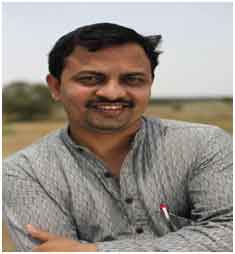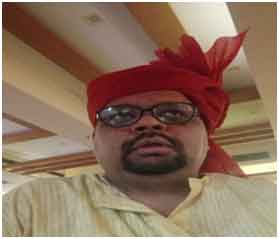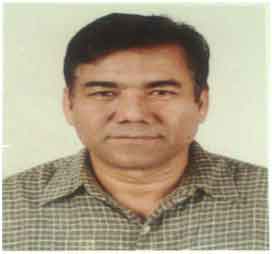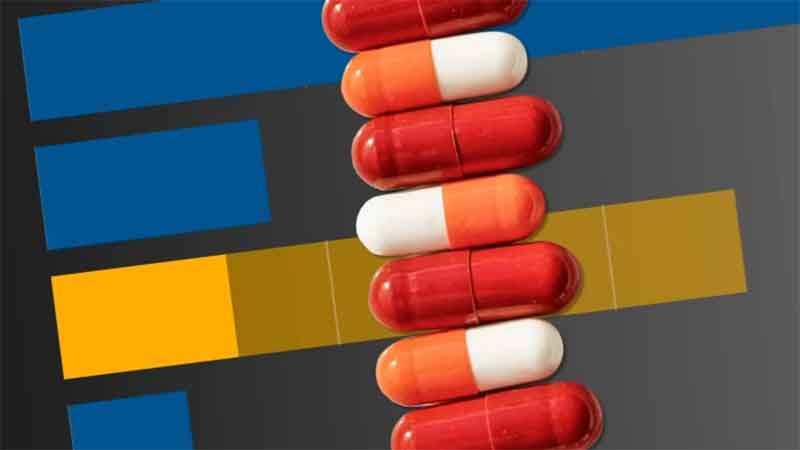The Corona crisis was becoming more dangerous with every passing day. At that time, I was living in my dormitory in Moscow. I was planning to come to India in March 2020 to attend Holi. By the time I started to look for flights, the crisis had already changed travel policies. Two weeks quarantine upon arrival with very less clarity about what might happen next. I cancelled my plans and decided to stay until the crisis was all over. I could only return to India in late April 2021. By that time, several people had died, many had lost their dear ones and many others were struggling to avail treatment. Similar stories we keep hearing from people around. It has been tough for everyone- rich and poor almost alike. There was a day when I couldn’t find paracetamol tablets in five nearby pharmacies in Moscow. But of course, the situation was handled well in Russia. Black tea with ginger and pepper helped me a lot with cold, throat soar and harsh winters.
In India, the news coverage was focused on how many are suffering and if Baba Ramdev’s medicine can be clinically approved. This debate between traditional and modern medicine is not new. The terms like pseudoscience/Diwaliya Science have been used for traditional practices such as Ayurveda for a long time. While countries like India are still trying to achieve the goal of affordable healthcare for all, such debates create more confusion among the masses than providing any real solutions. We are trying to find out ways in which these frictions can be reduced so that indigenous knowledge of food and traditional medicines can be scientifically restored and shared.
I spoke with Dr. Lenin Raghuvanshi, Dr. Sukant Khurana and Dr. Harpal Singh Negi about this. Dr. Raghuvanshi holds a Bachelor’s in Ayurveda, Modern medicine and Surgery (BAMS) from State Ayurvedic Medical College, Gurukul Kangari, Haridwar. He has won and has been nominated for several prominent national and international awards for his human rights work over the past three decades. He is the founder of People’s Vigilance Committee on Human Rights (PVCHR). Dr. Sukant Khurana is a professor, neuroscientist, drug discovery scientist, mathematician, AI architect, and data scientist by training. He has previously worked with prominent scientists, including field medal winners in mathematics and Nobel Laureates in Medicine and Physiology. He is the co-founder of Ioncure – a multinational firm. He is heavily involved in natural products for medicinal use and medical supply chain (including PPE). Dr. Harpal Singh Negi holds a doctorate in Traditional Medicinal Practices from H.N.B Garhwal University, Uttarakhand. He is a renowned social worker, environmentalist and founding director of Uttaranchal Youth and Rural Development Centre (UYRDC). He has been working with Himalayan communities for almost four decades now.

To my questions on finding synergies between traditional and modern medicines for improving the access to affordable healthcare, Dr. Raghuvanshi says: Health is a fundamental right. It links with Article 21 of the Indian Constitution that talks about the right to life with dignity. Traditional medicines are indigenous wisdom to cure and prevent diseases. Both modern (which is mostly referred to as scientific) and traditional practices are important for sustainable and healthy living. In times of crisis like Covid, modern medicines can be used as emergency response, but we must follow a proper food and nutrition regime. We must use natural and herbal products in our diet. Now, if we want to find sync, the ideal thing is to check each herb/plant’s nutritional value. It is simply a scientific method. Lifestyle changes, meditation, yoga, and switching between different types of food are mentioned in traditional systems. He adds that traditional medicines help in prevention. Secondly, after the emergency treatment from modern medicines, traditional medicines and indigenous knowledge are the best for the recovery and rehabilitation of the body and mind. Several stomach-related diseases can be cured permanently with the help of traditional medicines. Science needs to verify and check traditional medicines so that we have more options for a healthy life. That is how we will find the sync you wanted to know about.

Dr. Khurana provides a technical explanation. He argues that: Traditional medicine has the advantage of empirical evidence through centuries of testing on population, Most traditional medicine comes from sources available right next door to people. Almost half of FDA approved medicine started their journey as plant compounds. The idea of something being alternative medicine is a bogus idea. Either something is medicine or it is not medicine. That said, if we all get carried away by the benefits of traditional medicine, we will give rise to snake oil salesmen, who will use traditional knowledge as excuse for not having modern quantitative double blind testing. Taking traditional medicine literally has several dangers, ranging from lack of modern validation, even misinterpretation of older texts, and pretend medicine men prescribing solutions. While modern medicine and healthcare is full of problems, including profit motive, millions of people have been saved by antibiotics, hundreds of millions of diabetics living normal lives, and people now exploring longevity and anti-aging seriously. Finding more and more molecules from traditional medicine, bridging the gap between healthy eating to traditional medicine, and modern medicine, and providing healthcare to everyone as a universal human right is the need of the hour.

Dr. Negi comes up with a slightly different argument. He says that all doctors of modern medicine must have knowledge of traditional medicines, so that they could include in it their practice. Although government system appoints both types of doctors in hospitals, the imbalanced availability of medicines and other facilities makes things difficult. There is need to provide similar facilities to Ayurveda hospitals. It is also scientific. Patients should be treated according to their symptoms and which type of medicine can work best for them.
Dr. Khurana asserts that the gap between traditional and modern medicine is wide and at first instance seems like the two streams cannot be brought together. It is not an unbridgeable gulf but one must understand the difference to bridge the two. First is that traditional medicine is based on centuries old personalized solutions from the time when modern anatomy, metabolism, cell and molecular biology, genetics, and physiology were not known. The scaffolds of measuring problems, used to be in terms of kaffa, pitta, vata or several other complex principles, which should be mapped in modern terminology. Not just traditional medicine researchers should know modern biology but modern medicine scholars and practitioners should know of both nutrition and traditional medicine to be able to draw inspiration for novel treatments.
The other major gap is the political, social and economic angle. Traditional medical practitioners see all modern healthcare apparatus from the lens of simple money making racket without understanding and acknowledging the countless lives saved, where traditional medicine will not have been of much use, such as microbial infections, metabolic and lifestyle diseases, complex surgeries and medical prosthetics. Given that modern medicine was introduced by colonialists in most of the developing countries, there is an air of nationalism in traditional medicine and disbelief in modern medicine system. In contrast modern medicine practitioners fail to understand that traditional medicine has offered several cures and in some diseases better than modern medicine.
Dr. Negi argues that each patient should be tested for both modern and traditional practices. Based on the reports and consultations between the practitioners of two streams, he/she should be given treatment. This will provide cheaper and better care to the patient. Moreover, it will cure the sickness properly. Additionally, efforts should be put to open more pharmacies of traditional medicines around the hospitals as similar to modern medicine pharmacies.
On how to combine these two, Dr. Khurana explains: If one uses optical character recognition to systematize all documented traditional medicine, collates and cleans data on modern testing of traditional medicine, uses data science approaches to find anomalies and data fabrications, uses artificial intelligence in addition to drug discovery approaches to extract as much useful information from traditional medicine as possible, a way forward is possible. Enviably, we are not the only one doing it but are among the few doing it. The goal is to be the best at it and I think the team of Ioncure that I lead has demonstrated potential of doing it. Now let us see how it performs when the lights are on. Integration of leads and information from traditional medicine to modern medicine will revolutionize it and we aspire to lead this revolution at my ventures.
He adds we need to understand, food, traditional medicine, exercise, and modern medicine all serve a single goal to improve human health. This means that breaking of discipline boundaries is a precondition to solution. In a country like India, where despite people and various state and central current and previous governments’ desire to find solutions, academic cliques have vested corrupt interests in blocking any such solutions, who are focussed on corruption tied to grants, nepotistic promotions, sustaining ideological clubs, promoting fake molecules to fail only at late stage, and publications that show up as largely or wholly fabricated and plagiarized. The solution is to find the right individuals across national boundaries, find alliances with governments, people and right academicians, and to operate in a for profit sustainable sphere instead of a sphere which is maintained by politicking for grants.
Dr. Negi believes that the right to access of affordable healthcare has not been reached yet due to rapid commercialization of modern medicine and ignorance of traditional medicine. It is a case of a mismatch between what is required and what is available. That leads to expensive treatment.
Dr. Khurana adds further that profit and poverty are the two simple reasons healthcare is not accepted as a human right. He argues that there are examples all around that wherever the government has means, the country is doing well, and there is a basic demand, better health is made available to people. He says that ranging from memorphin to various cancer drugs to half of the database of FDA approved medicines have roots in natural products and local knowledge of some of their uses.
Ashish Singh is a sociologist and political scientist.
















































